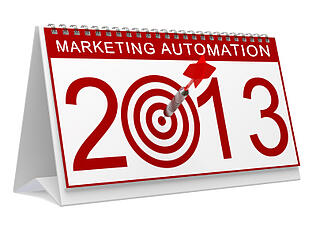 At Grant Marketing, we like to stay ahead of the curve and that’s also the reason why we spend a great deal of time researching, monitoring current marketing trends, gathering consumer insights and pushing beyond this to deliver customized marketing solutions. This year we bring the concept of marketing automation into our zeitgeist. Although it is an evolving concept that many companies particularly in the B2B space are still grappling to acquire the right knowledge in order to leverage this technology to its full potential which exists today. This blog aims to impart a degree of understanding on the importance of embarking on a marketing automation journey for B2B, as there is a general consensus now more than ever, the value of marketing automation capabilities needs to be understood by both small and medium-sized B2B to large enterprises.
At Grant Marketing, we like to stay ahead of the curve and that’s also the reason why we spend a great deal of time researching, monitoring current marketing trends, gathering consumer insights and pushing beyond this to deliver customized marketing solutions. This year we bring the concept of marketing automation into our zeitgeist. Although it is an evolving concept that many companies particularly in the B2B space are still grappling to acquire the right knowledge in order to leverage this technology to its full potential which exists today. This blog aims to impart a degree of understanding on the importance of embarking on a marketing automation journey for B2B, as there is a general consensus now more than ever, the value of marketing automation capabilities needs to be understood by both small and medium-sized B2B to large enterprises.
To start with, there are several marketing automation definitions floating around the internet, but the one that fits well with B2B marketing automation is defined by Marketo, “marketing automation is the use of technology to manage and automate the process of converting prospective customers into actual buyers. By automating the various tasks and workflows involved in demand generation, lead management, and sales and marketing alignment, marketing automation contributes to shorter sales cycles, increased revenue, and better marketing ROI.” Modern Marketing automation platforms play a critical role as we move towards an era of personalization, with the use of sophisticated technology they have become purveyor of highly personalized marketing. It is important to note that the foundation of marketing automation is laid by gathering in-depth information on the existing and potential customer’s preferences and behavior. And that is something which is on every B2B company’s wish list. But according to Sirius Decisions Benchmarking report, only 25% of all organizations (B2B and B2C) have invested in marketing automation and are utilizing it to the fullest. To make the case for marketing automation even stronger and viable, particularly in the B2B space, where marketing is complex, involves multiple stakeholders and longer sales cycle; there is a greater need for a defined, track able marketing process or platform and marketing automation provides that platform to achieve success in terms of driving customer intimacy, productivity and revenue growth.
Let us now take a cursory look at the components that make up the concept of marketing automation:
Lead Generation: It involves creating demand or leads at the top of the buying funnel. These are the leads that begin the conversation between a prospect and an organization and later kick start the sales cycle.
Data Segmentation: This process includes classifying leads data on the basis of job roles, industry, region and various other criteria. Data segmentation can happen at different levels.
Lead Scoring: Scoring of leads is a relative ranking of prospective buyers over one another. It is an unbiased way of determining the prospects that are ready for more attention from the organization. Lead scoring is a way of learning the make-up of the buyer profile.
Lead Nurturing: Lead nurturing is the process of communicating with leads/customers/buyers, building better engagement and enabling better movement through the buyer profile.
Program Management: Program Management in marketing automation includes effectively automating management of essential campaign processes, customer communication management across channels, tracking responses, consolidating and reporting results.
Campaign Measurement: Measuring marketing campaigns is a procedure of creating, executing and measuring marketing programs with a specific target audience.
Workflow: It is a pre-determined path of interactions for prospects to experience based on their profile, demographic and/or behavioral data with a goal of nurturing and building relationships.
Revenue Cycle: The revenue cycle starts from the day the organization first meets a prospect and continues through the sale and beyond, to the customer relationship.
Bottom Line: Marketing automation provides method to the madness!
Grant Marketing offers a demo and free trial of marketing automation at Marketing Auto Demo.
Written by Vidushi Bhardwaj
Vidushi Bhardwaj is the Content Marketing Strategist at Grant Marketing. She possess a strong background in content marketing and integrated marketing communications. Passionate about innovation in the digital marketing and social media space has driven her to the marketing world. You can connect with her by sharing your thoughts on her blog.

